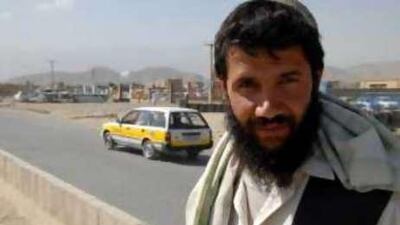KABUL // On the outskirts of Kabul city, taxi drivers park their battered old Toyota Corollas and wait for passengers who want to head south. The road they will travel used to be promoted as a sign of US commitment to developing Afghanistan. Now it symbolises the Taliban's growing strength. "We will not go after 5pm - it's very dangerous," said Rahim Ullah, one of those looking for business. "We go when the sun is high, not at any other time."
The problems start just 30 minutes from this pickup point, and they continue all the way to Kandahar, along a stretch of tarmac that cost US$190 million (Dh700m). According to several taxi drivers, the road has become so deadly that it is effectively under Taliban control. Insurgents stage regular ambushes, plant bombs and man checkpoints. The Nato-led International Security Assistance force (Isaf) is often the target, but civilians inevitably get caught in the crossfire.
"The government exists in its buildings," Mr Ullah said. "A kilometre from the buildings there is no security." Highway 1 is Afghanistan's most crucial transport link. In economic and military terms, the road is a lifeline connecting the capital to the south and beyond. The provinces it runs through before reaching Kandahar read like a descent into hell: first comes Maidan Wardak, next is Ghazni, then Zabul.
Alone, they are notoriously violent. Together, they are a huge area of land many Afghans now regard as off-limits. In recent months, this main route south has become a key battleground for the Taliban, who have staged a series of high-profile attacks during the day and night. On June 24, a convoy of about 50 lorries carrying supplies for foreign troops was ambushed and set ablaze only a short distance from Kabul.
Mr Ullah, 45, has been a taxi driver for a decade and said he has never seen the situation as bad as it is now. "Under the Taliban, there was one government. Now there are three: the Karzai regime, Isaf and the Taliban," he said. He does not travel to Kandahar, preferring instead to finish his journeys in Ghazni. Having watched the insurgency spread up the motorway, he is now "100 per cent sure" the Taliban will eventually return to power.
"What does Isaf do for Afghanistan?" he asked. "Isaf isn't good for us, and we don't want the soldiers here." The taxi drivers have a fair idea of what to expect when they set out on a trip, and they prepare accordingly. Occasionally, however, their passengers do not. When the Taliban search vehicles they look in people's wallets and phones, trying to find anything that is a sign of a close link to the government or a foreign organisation. Even bank cards can be enough to incriminate someone in the eyes of the insurgents.
Most drivers know of colleagues who have had passengers kidnapped, and almost certainly killed, at makeshift checkpoints. "The Taliban can go wherever they want. They have stopped my car a hundred times," Khan Agha said. Two days earlier, his Corolla was shot when rebels ambushed some local troops. With sadness and disgust, he showed off a bullet hole in the car's bonnet. "Everyone is bad: the Taliban, the government and Isaf," he said.
Despite the threats from the insurgents, a number of taxi drivers blamed the occupation for the chaos. Hafiz Ullah praised the Afghan army, but added he would be happy if the Taliban seized power again. "Nato is a big problem for us because when they go from Kandahar to Ghazni and Kabul, we have to wait for hours and can't drive on the road," he said. The bomb craters and burnt-out lorries that scar Highway 1 are not simply a footprint of the militant's steady march towards the capital. They are also a reminder of how the government and its allies have lost trust among the local population.
Some taxi drivers talk of absurd conspiracies where the Taliban and the international troops never fight each other. Others just look at the way security has deteriorated since 2001 and draw their conclusions from that. One, who gave his name only as Mahboob, claimed foreign soldiers had shot his car a month ago, killing four passengers. "It's Isaf that causes all the problems," he said. csands@thenational.ae

